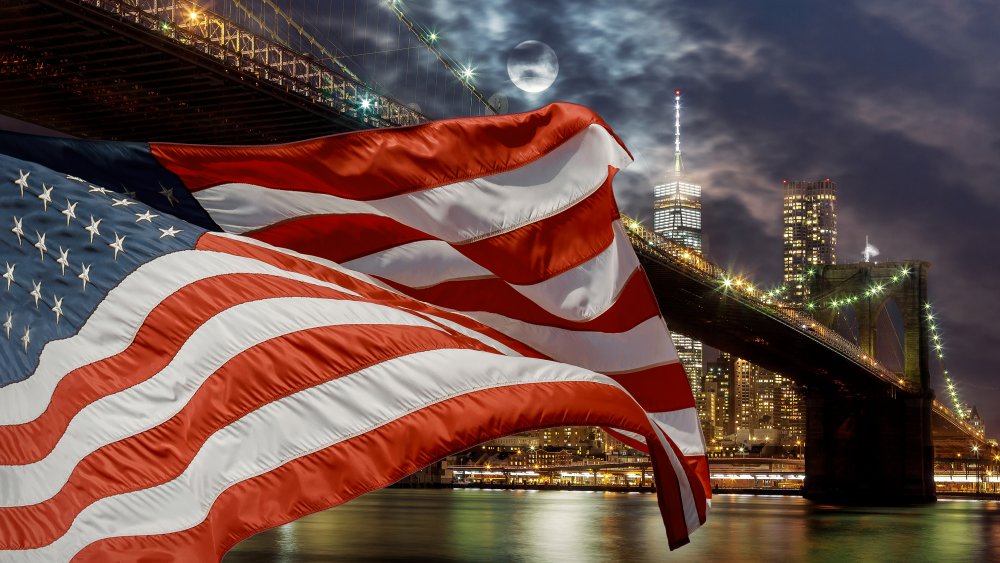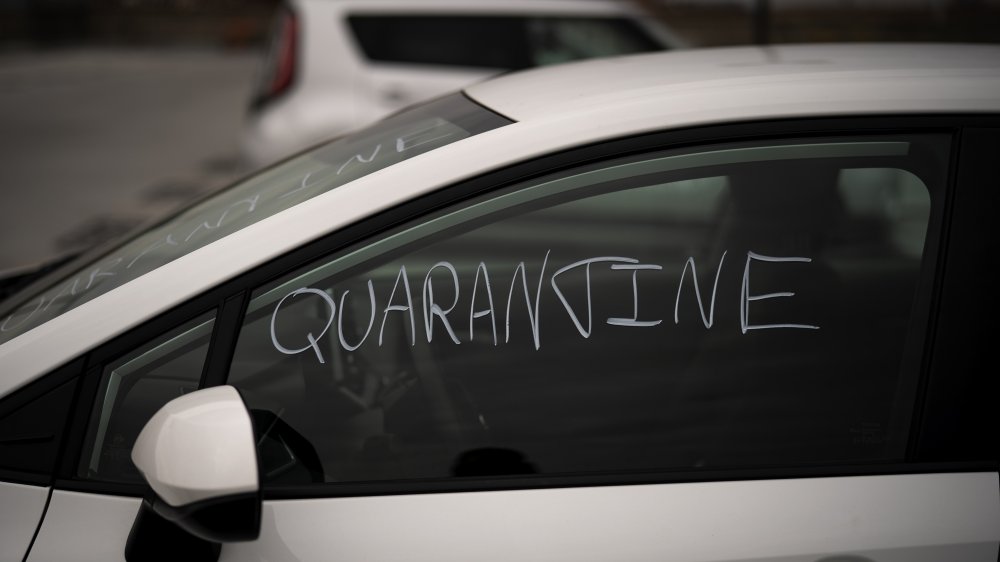What A National Quarantine Would Actually Mean In The US
So, the novel coronavirus has entered the Land of the Free, and judging by the most recent news, the "free" part is already debatable for some areas. As NBC Bay Area reports, San Francisco and five other Bay Area counties have already made the tough call to give a stay-at-home order, where people can only leave their residences for clearly defined essential needs. There is talk that we might see more of this in the future. In fact, Reuters told us on March 18, 2020, that there have been widespread rumors that President Donald Trump might invoke the Stafford Act to declare a mandatory, nation-wide 14-day coronavirus quarantine. In reality, of course, the Stafford Act unleashes the Federal Emergency Management Agency to coordinate the nation's response to major natural catastrophes and help state and local governments, and while Trump has evoked it a few times, as of March 19 he has last used it to "merely" declare the COVID-19 virus a national emergency on March 13. So, no country-wide quarantines quite yet. We can all keep living our lives, as long as we wash our hands, keep our distance to other people, and generally follow the CDC's instructions to prevent the disease.
Still, the merest mention of a national quarantine is enough to have the old "What if?" hairs on the back of the neck stand up. Could it really happen? What would a national quarantine would actually mean in the US? Let's see what the experts have to say!
Crimes, punishments and ethical issues
Nicholas Florko of STAT has looked into the implications and impact of a quarantine on a national level. "Quarantine" essentially means a period of isolation to see whether the quarantined folks have a disease, and to make sure they don't run around infecting other people with it. Should the government impose such drastic measures across the US, it would be an actual crime to break the federal quarantine. According to the Centers for Disease Control and Prevention, this would mean that unsanctioned interacting with the outside world could get you a fine or even jail time. The Congressional Research Service does one better, and lists the potential punishments for federal quarantine violation as " a fine of up to $100,000, a year in jail, or both." Oof.
There are also several legal and ethical issues that would need to be sorted out before a national quarantine. Nancy Kass, the deputy director for public health in the Berman Institute of Bioethics, lists a series of troubles that could vary widely depending on where you live. There would have to be a sufficient income replacement for people losing their income because of the quarantine, a need to make sure that grocery stores remain accessible despite the quarantine, and a major concern on how to keep the quarantined people from going haywire in the isolation. In relation to that last one, Kass actually lists Netflix access as an "ethical consideration." Ha, who says experts aren't looking after us?

